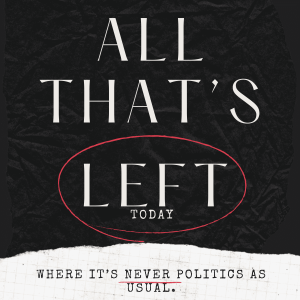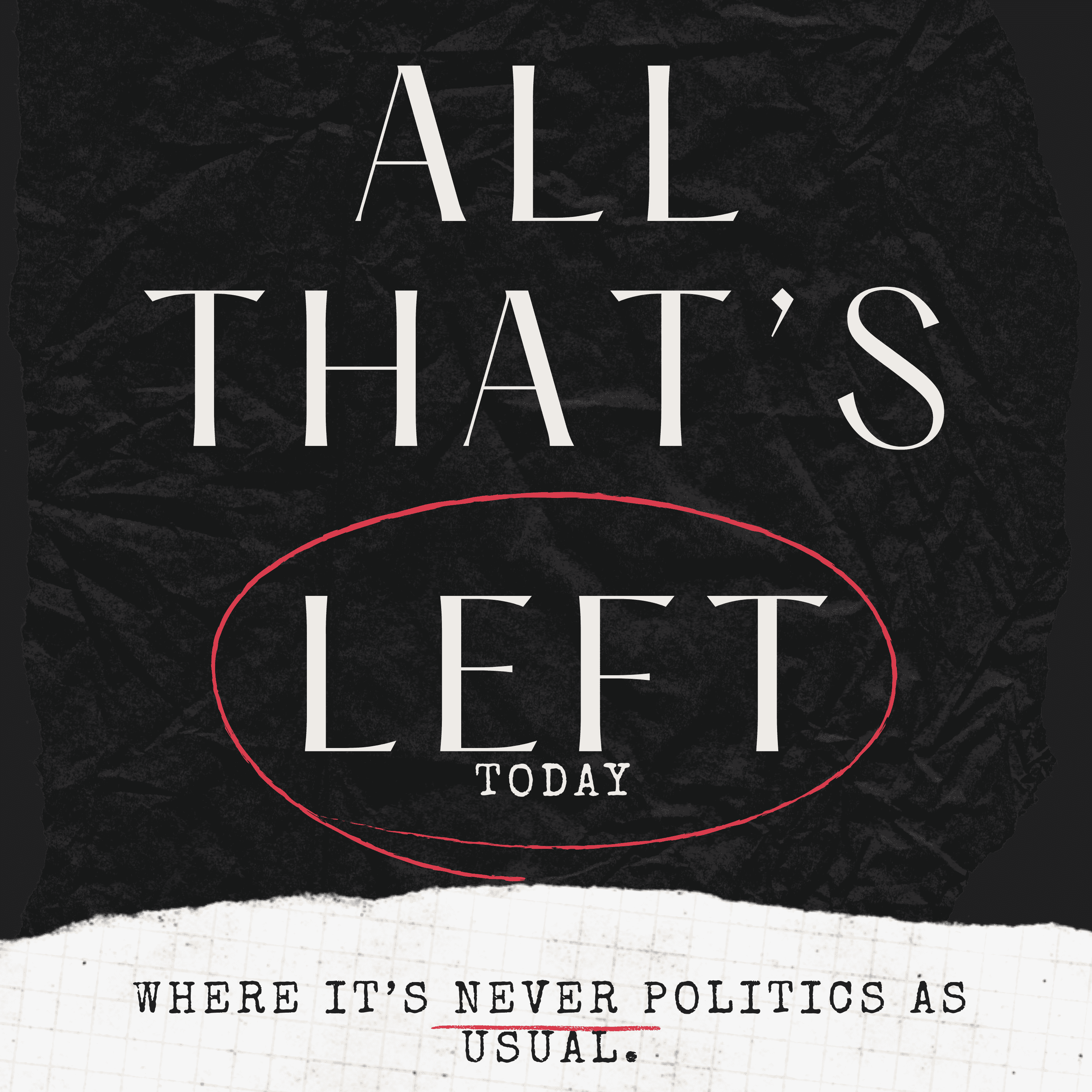Episodes

Tuesday Dec 16, 2025
Tuesday Dec 16, 2025
This episode blasts Republican leaders for denying inflation, spreading misleading claims, and blocking an extension of Affordable Care Act subsidies that could leave 22 million Americans facing massive premium increases.
It also covers criticism of Trump’s rhetoric, a $40 billion loan to Argentina instead of extending health subsidies, withheld military footage, and proposed rollbacks of environmental protections—ending with a call to vote for change.

Sunday Dec 07, 2025
It’s Been a ReallyTough Year for the “American Dream”
Sunday Dec 07, 2025
Sunday Dec 07, 2025
This episode examines abusive conditions in U.S. immigration detention centers and rising anti-immigrant rhetoric from public figures.
It connects eyewitness reports of medical neglect and alleged torture with political attacks on immigrants, discusses the role of responsible immigration amid declining birth rates, and warns about related rollbacks on public health and civic institutions.

Monday Nov 17, 2025
GOP Calls Medicare 'Socialist' — Writing Off ANY Chance For a Public Option
Monday Nov 17, 2025
Monday Nov 17, 2025
This episode breaks down Donald Trump's proposed approach of giving money directly to individuals to buy insurance, and explains why that tactic is unlikely to reduce costs or protect insurance risk pools.
It also covers GOP resistance to Medicare-style solutions, growing concerns about AI-driven job losses, and warns that policymakers need clearer, forward-looking plans ahead of the midterms.

Sunday Nov 16, 2025
Epstein Files Showdown: House Floor Vote Sparks GOP Civil War
Sunday Nov 16, 2025
Sunday Nov 16, 2025
This episode breaks down the brewing showdown over the Epstein files, with an anticipated House floor vote putting pressure on Republicans while raising questions about what’s in the documents and who controls them.
It also covers Trump’s latest physical and his claimed perfect cognitive test, Marjorie Taylor Greene’s push to release the files and the backlash she’s received, and fresh claims from Epstein-related documents — including a Michael Wolff email — that add new controversy and uncertainty about the story’s outcome.

Wednesday Nov 12, 2025
Wednesday Nov 12, 2025
Today's episode exposes sleazy moves by GOP senators who slipped a retroactive provision into a funding bill to potentially collect payouts over post–January 6th phone-record searches, digs into newly released Epstein emails and reports of special treatment for Ghislaine Maxwell, and outlines three examples of how President Trump often acts first and thinks later — from a controversial 50-year mortgage idea to tariff fallout and cuts to Alzheimer’s research.
We break down the politics, the hypocrisy, and what to watch next in the House as advocates push to remove the provision and demand transparency on the Epstein files.

Thursday Oct 09, 2025
How 'Antifa' and the Insurrection Act Are Being Weaponized To Rig An Election
Thursday Oct 09, 2025
Thursday Oct 09, 2025
This episode exposes two strategies aimed at influencing the upcoming midterm elections: labeling protesters and left-leaning opponents as "Antifa" to justify crackdowns under the Insurrection Act, and using claims about the 2020 census to push redistricting that benefits Republicans.
The host reviews ICE raids, National Guard deployments, commentary from Trump allies and right-wing media, and Senator Jim Banks's campaign to challenge census data—arguing these moves are intended to consolidate power ahead of the mid term elections rather than fix real problems.

Wednesday Oct 08, 2025
Trump's 'Antifa' Chatter Has a Predictable Goal
Wednesday Oct 08, 2025
Wednesday Oct 08, 2025
This episode examines a recent Trump-led meeting labeled an "Antifa Roundtable," where officials discussed tracking funding and using federal authority against perceived left-wing threats.
The host outlines concerns that the administration may use financial investigations, ICE, the National Guard, and the Insurrection Act to classify and suppress opposition groups—potentially targeting Democrats, fundraisers, and the press—to influence upcoming midterm elections.

Tuesday Oct 07, 2025
Bannon War Room Rants: The Whistleblower Call and FBI Surveillance Claims
Tuesday Oct 07, 2025
Tuesday Oct 07, 2025
So today on Steve Bannon's War Room Podcast, the show claimed the FBI secretly surveilled Republican senators and called for whistleblowers. Guests like Senator Tommy Tuberville and commentary from Chuck Grassley were highlighted; Grassley released a memo about 'tolling' phone data (not content) during the January 6 investigation. The episode criticizes the War Room for pushing a weaponization narrative, questions their evidence, and notes the ongoing debate over January 6 injuries and partisan motives.

Sunday Oct 05, 2025
I Want My Life Back: The Never-Ending Trump News Cycle
Sunday Oct 05, 2025
Sunday Oct 05, 2025
The episode expresses frustration with a nonstop news cycle dominated by the Trump administration, militarized responses, and aggressive immigration enforcement that feel designed to intimidate rather than govern.
The host calls for a return to normalcy and sanity—highlighting concerns about ICE and National Guard deployments, dangerous rhetoric from advisors, and the broader political impacts on everyday Americans, farmers, and upcoming midterm elections.

Saturday Sep 27, 2025
Fear, Division, and the Price We Pay For TrumpCare
Saturday Sep 27, 2025
Saturday Sep 27, 2025
This episode explains how proposed cuts to Obamacare marketplace subsidies could raise premiums and hurt low- and middle-income Americans, especially gig and self-employed workers.
It also critiques political tactics that shift attention to immigration and fear-based messaging instead of addressing the real economic and healthcare impacts, and calls for unity over division.

